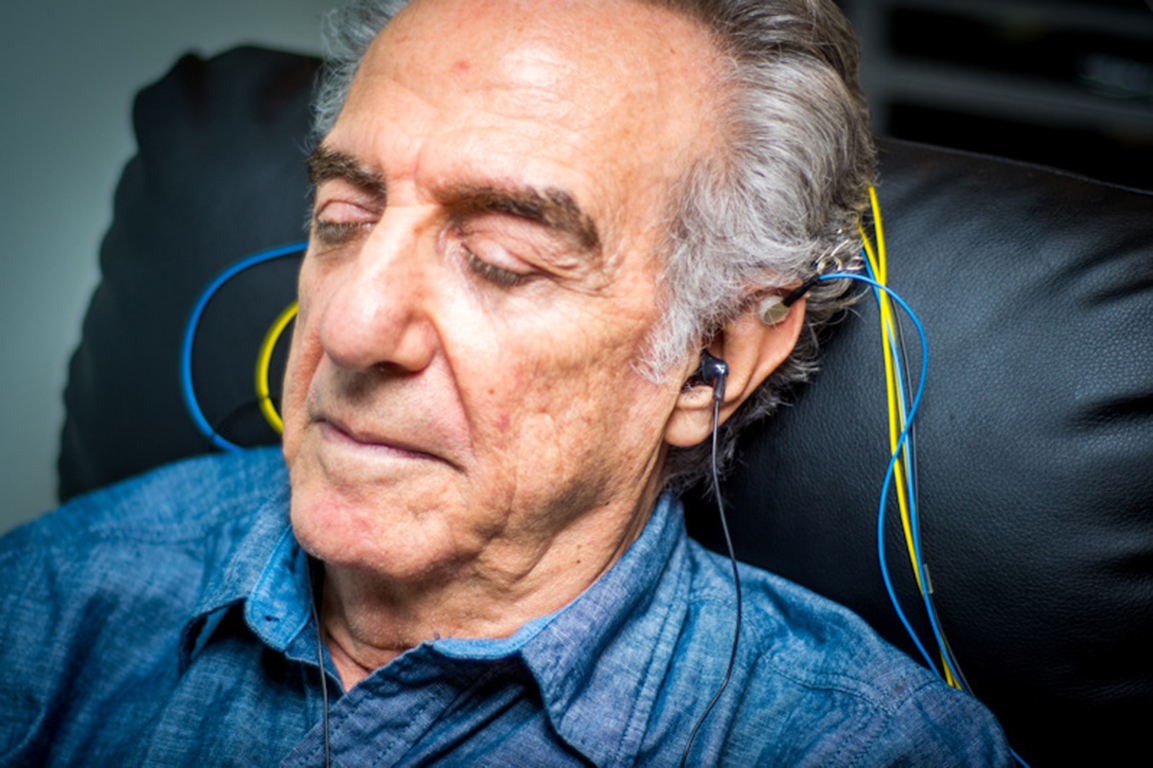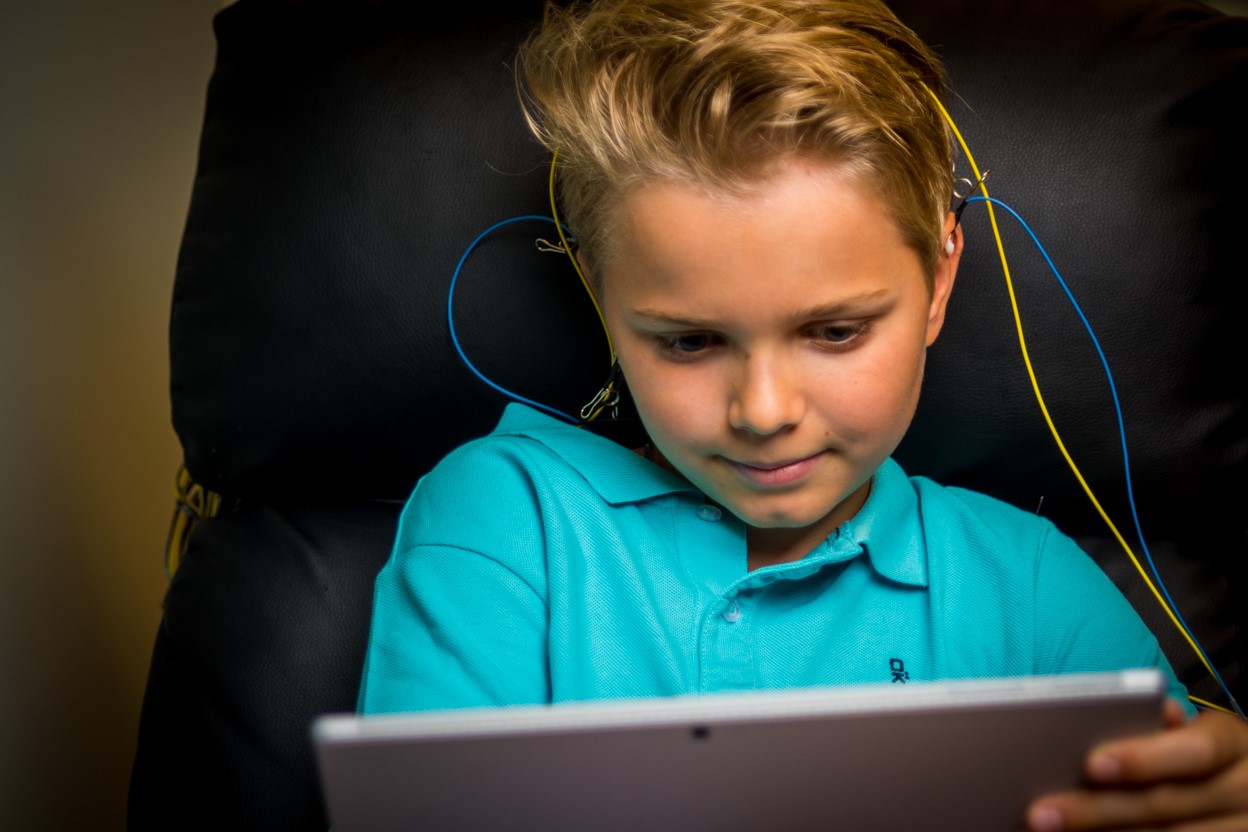Brainwave Training for Insomnia: A Comprehensive Study

Auditory-Based Neurofeedback:
Insomnia is a widespread issue affecting millions of people worldwide. Despite various treatments medically available, many individuals continue to struggle with sleeplessness. Traditional pharmaceutical treatments often come with a host of side effects, leading many to seek alternative methods. One such promising method is brainwave training, also known as neurofeedback.
Understanding Brainwaves and Insomnia
Insomnia is often associated with irregular brainwave patterns. Our brains operate on different frequencies depending on our activities and states of consciousness. For instance, beta waves are dominant when we are awake and alert, while alpha waves are more prominent during relaxed states. Delta waves, on the other hand, are associated with deep sleep. When these patterns are disrupted, it can lead to difficulties in falling or staying asleep.
Brainwave training aims to correct these irregularities. By monitoring and adjusting brainwave frequencies, neurofeedback can help restore healthy sleep patterns. This non-invasive technique has shown promise in treating various sleep disorders, including insomnia.
How Neurofeedback Works
Neurofeedback involves using sensors placed on the scalp to monitor brainwave activity. This data is then processed and displayed in real-time, allowing individuals to see their brainwave patterns. Through guided training sessions, individuals learn to adjust their brainwave frequencies to achieve desired states, such as relaxation or sleep.
The training process typically involves auditory feedback. For example, when the brain produces the desired brainwave pattern, the individual might hear a pleasant sound. Over time, the brain learns to produce these patterns more consistently, leading to improved sleep quality.
Amplitude-Based Auditory Neurofeedback
Amplitude-based auditory neurofeedback is a sophisticated brain training technique designed to enhance brain function and overall well-being through real-time feedback. The essence of this method lies in the brain’s innate quest for balance and harmony. By delivering feedback on its own activity, individuals can train their brains to self-regulate, fostering improved functionality and well-being.
Unique Features of Auditory Neurofeedback
What sets auditory neurofeedback apart is its holistic approach. Rather than targeting specific brain waves or areas, it provides comprehensive feedback on the brain’s activity, enabling it to self-adjust. This method helps rectify dysfunctional patterns, leading to enhanced cognitive abilities, better emotional regulation, and overall improved well-being.
Neurofeedback Procedure at Sleep Recovery
Sleep Recovery, Inc. is the sole practice in the US applying auditory-based neurofeedback combined with science backed sleep coaching. See there reviews here.
Sensor Attachment and Initial Setup
The journey begins with the attachment of sensors to the scalp. These sensors meticulously detect the brain’s electrical activity, forming the backbone of the feedback system.
Real-Time Feedback
Once sensors are in place, the system translates the brain’s electrical signals into real-time auditory cues. These cues, such as variations in sound, are fed back to the individual, offering immediate insights into their brain activity.
Non-Invasive Observation
A standout feature of this neurofeedback type is its non-invasive nature. Individuals do not need to consciously manipulate their brain activity. Instead, they simply listen to the feedback, allowing their brain to adjust and regulate itself naturally.
Therapeutic Sessions
Neurofeedback therapy involves multiple sessions, each lasting about 30-35 minutes. During these sessions, individuals can relax in a comfortable chair with sensors on their scalp. They may listen to calming music, read, or simply unwind, making the experience both enjoyable and stress-free.
Self-Regulation and Adjustment
Throughout the session, the real-time feedback enables individuals to effortlessly regulate their brain function. Over time, this self-regulation leads to better sleep quality, reduced anxiety, enhanced cognitive function, emotional stability, and overall well-being.
Personalized Brain Training
One of the remarkable aspects of neurofeedback is its adaptability to individual brain function. The system responds dynamically to the unique neural patterns of each individual, offering highly personalized feedback that optimizes brain activity in real-time.
Benefits and Effectiveness
Neurofeedback has demonstrated effectiveness in improving various psychological and neurological conditions, including anxiety, depression, ADHD, and insomnia. Research highlights its potential: in a study of college students with ADHD, neurofeedback significantly reduced symptoms of inattention, hyperactivity, and associated emotional challenges (Harris, 2017). Similarly, individuals recovering from chemotherapy experienced marked reductions in cognitive deficits, fatigue, and psychological symptoms after neurofeedback training.
Moreover, neurofeedback offers a viable alternative for children who do not respond well to medication or for parents seeking non-pharmaceutical interventions. A comparative study found that while both neurofeedback and methylphenidate (Ritalin) improved ADHD symptoms, only neurofeedback enhanced response inhibition (Nazari et al., 2011).
Case Studies and Testimonials
Many individuals have experienced significant improvements in their sleep quality through brainwave training. For example, D. Vail, a local guide, shared their experience with Sleep Recovery:
“I’ve been struggling with chronic anxiety most of my life. I have tried every drug and supplement known to man to try to break free from this. A co-worker told me about Sleep Recovery and I wasn’t sure if they could help me because their specialty seemed to be only insomnia. When I talked to David, he was patient and explained to me that insomnia and anxiety work against each other and can make anxiety way worse. And that they can treat for both at the same time.
The relief came in only 3 sessions. I fell asleep during the session! David is also very good with coaching for anxiety-type personalities. He showed me how to use my awareness to see the traps anxiety set for me to fall back into it. Now I have tools to get calm and stay calm most days. Thanks, Sleep Recovery for all the help!”
Another client, Craig Elliott, shared his success story:
“I had been suffering from severe insomnia for over three years. I tried dozens of remedies, and nothing got the job done, until I found sleeprecoverycenters.com. It really worked, and I’ve actually come across others that have also had success with neurofeedback therapy, now that I’ve started spreading the word. I can sleep every night now, seriously. I also feel less anxious during the day, and more inspired and energized. David Mayen and Sleep Recovery guided me through the entire process. I highly recommend this therapy.

The Future of Insomnia Treatment
As awareness of brainwave training grows, more individuals are likely to turn to this innovative treatment for insomnia. Its non-invasive nature, lack of side effects, and personalized approach make it an appealing alternative to traditional pharmaceutical treatments. Continued research and case studies will further validate its effectiveness, potentially making auditory-based neurofeedback a mainstream solution for sleep disorders.
Conclusion
Insomnia doesn’t have to be a lifelong struggle. With advances in neurofeedback and brainwave training, individuals can now achieve better sleep patterns and improve their overall quality of life. If you’re tired of the side effects and limited effectiveness of traditional treatments, consider exploring brainwave training as a natural and effective solution for insomnia.

